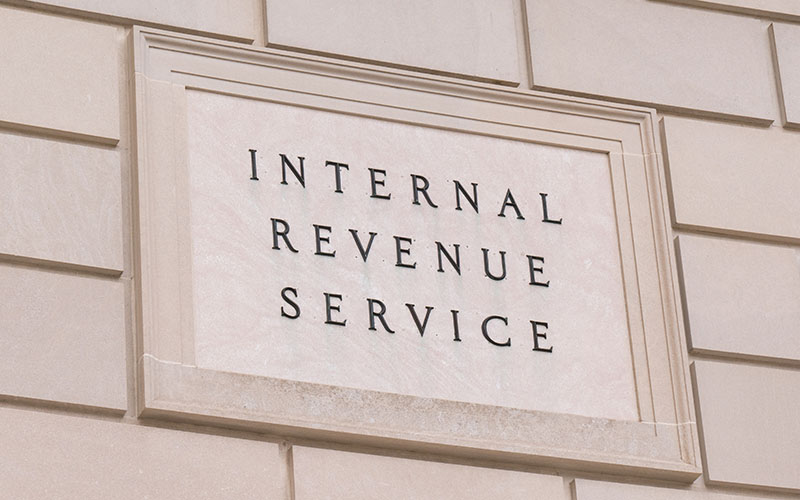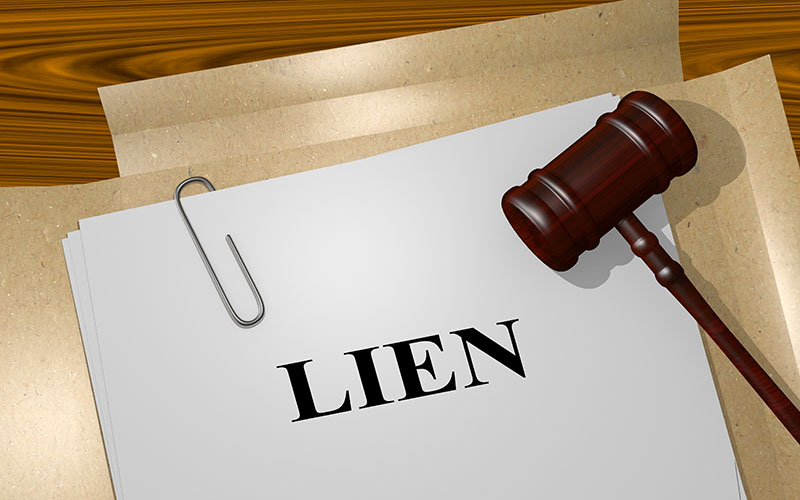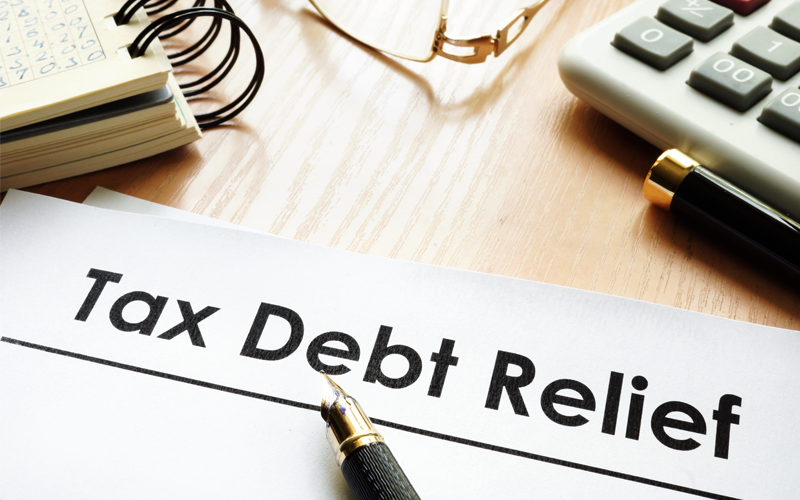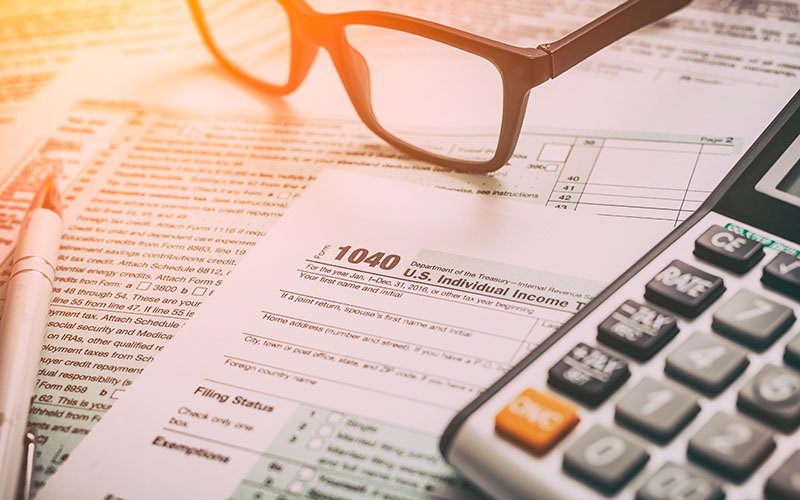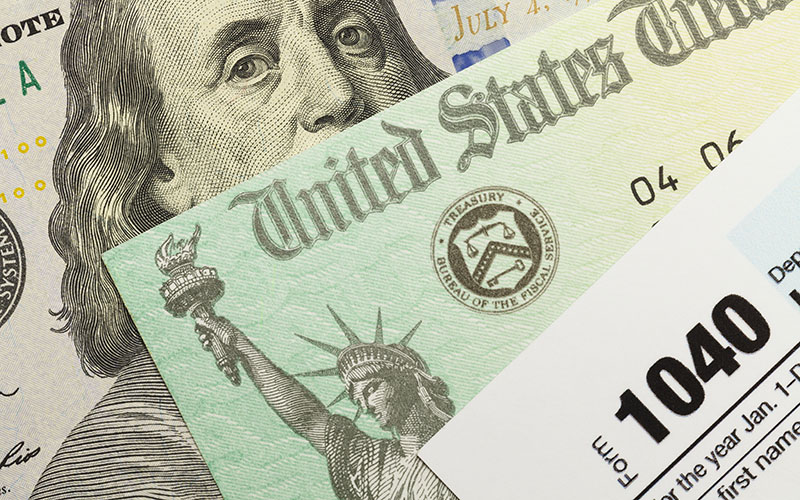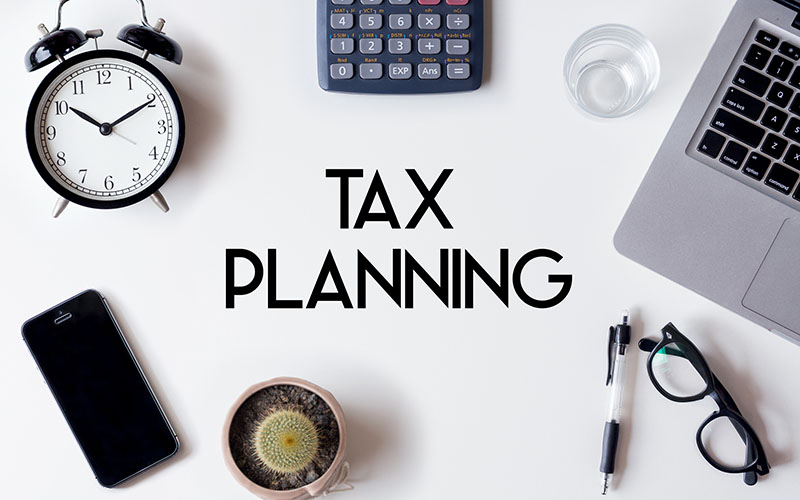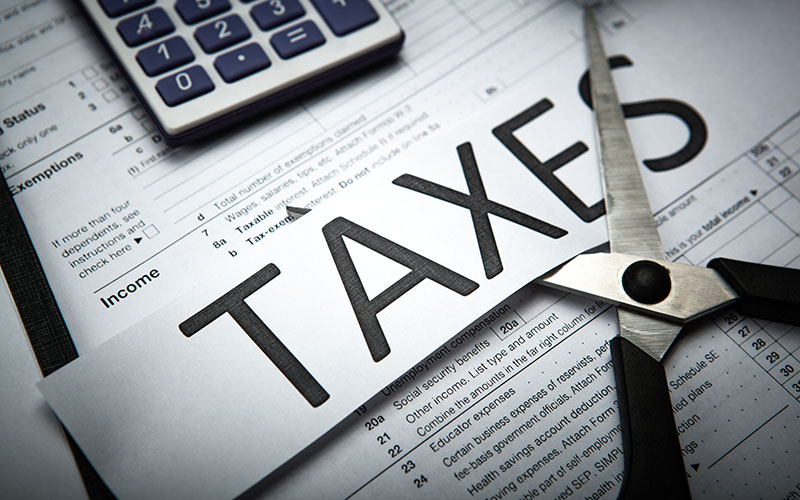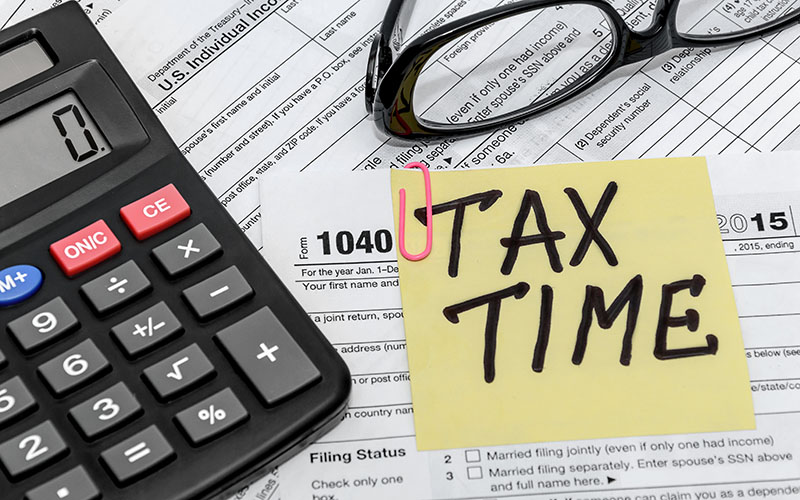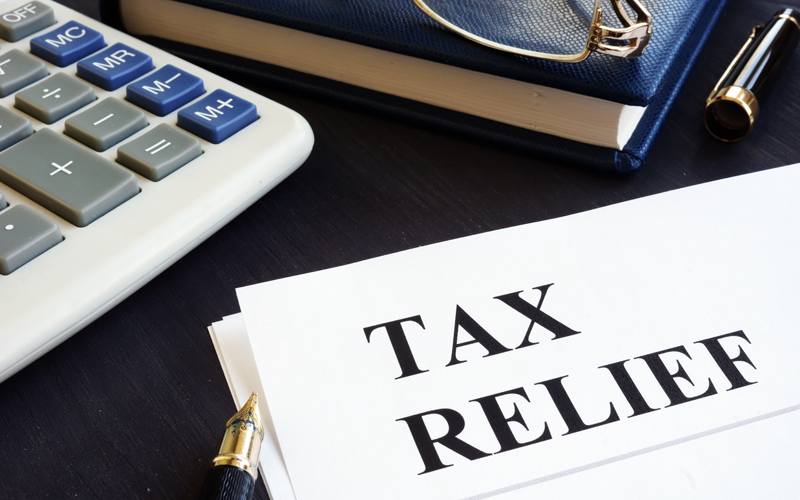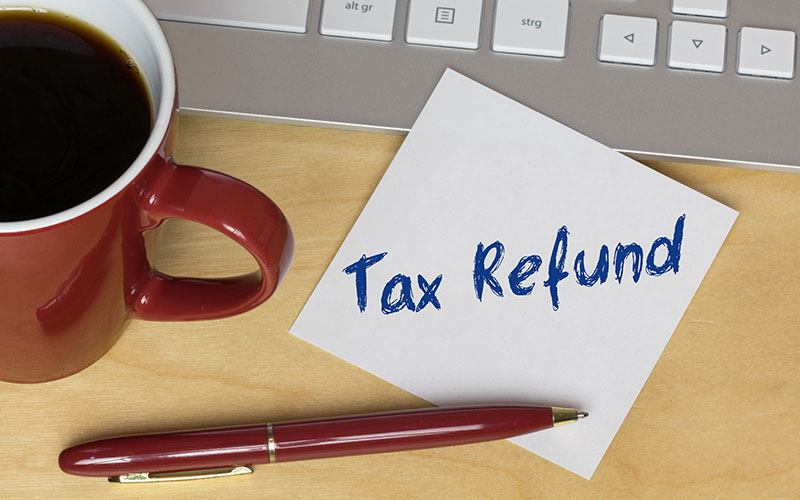Haven't Filed Taxes In Years? Here's What You Need To Know
Key Takeaways
- Failure to file can result in fines, interest, substitute returns by the IRS (with no deductions), denied passports, and even jail time
- If the government owes you money, you have a 3-year window to claim it — after that, refunds are forfeited
- Whether you owe or are owed, catching up on back taxes is essential; some options include filing yourself, hiring a tax professional, or using a tax relief service
- You may qualify for penalty waivers, installment agreements, Offers in Compromise, or tax lien withdrawals, especially with help from a reputable tax relief company
- The longer you delay, the more penalties and complications you face so file, pay what you can, and work with the IRS or a professional to settle the rest
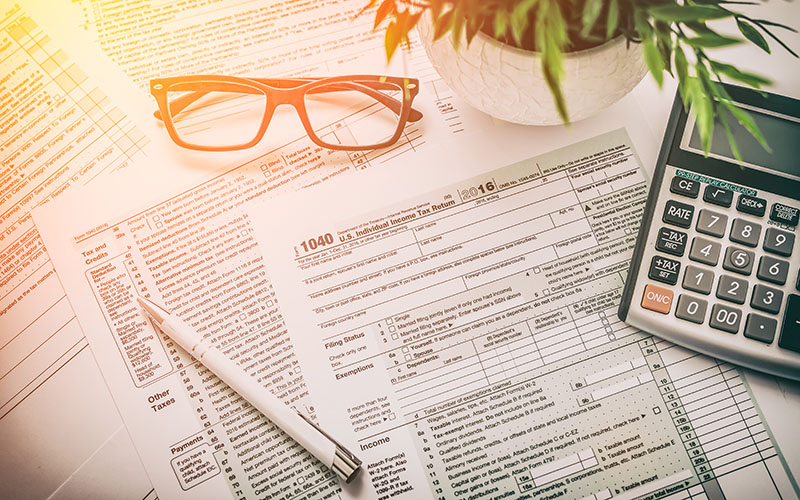
Many people find themselves in a situation where they haven’t filed their taxes in years.
If this is the case with you, there may be a variety of reasons why you decided not to file.
Maybe you’ve been afraid to find out how much you owe, knowing it’ll be difficult to find the money to pay the bill.
Maybe you don’t think you made enough to owe money, so there doesn’t seem to be a point to going to all the trouble.
Or maybe life has just gotten in the way and you’re absorbed caring for a dying family member or navigating your divorce.
While it may seem like a daunting hole to climb out of, filing all your back taxes and paying any money you owe is important.
Here’s what you need to know if you haven’t filed your taxes – and what to do in order to get caught up.

What Happens If You Don’t File Your Taxes?
First, let’s set the record straight: If you make an income above the IRS’s threshold in a given year, you are required by law to file your income taxes.
Even if you expect to receive every penny back that you paid in taxes in a year, you’re still required to file your tax returns with the IRS and your state.
If you have not filed your tax returns, the consequences are different based on whether you are owed money or whether you owe the government money.
If The Government Owes You Money
According to the IRS, they are still holding more than $1.4 billion in unpaid refunds from the 2015 tax year. That’s a lot of people who could have gotten money back during tax season but didn’t because they never filed a tax return!
If you are owed money, either by the IRS or by your state, no one’s going to come beating down your door to give you your check.
The good news is the money you’re owed is still on the table, waiting for you to take it – for a certain period of time.
Taxpayers have a three-year window of time after the filing year due date to file their tax returns and claim their refunds. If you haven’t filed 2018 tax returns, for example, you’ll have until April 15, 2022, to file in order to receive your refund.
Simply file your tax return from any of the previous years - your form 1040, form 1040A, or form 1040EZ - and you’ll receive any owed refunds from the prior three tax years.
If You Owe The Government Money
Here’s where the situation gets a little more tricky.
Of course, if you owe the government money, they’re going to want that money, even if it’s only a small amount.
There is no limit on how far back you can file a tax return, but you may face some penalties for being delinquent.
Consequences Of Not Paying Your Taxes On Time
Because the government wants its money, there are some consequences that may result from filing overdue returns. You may also experience consequences that aren’t directly related to the government but that can still impact your life.
Some of the penalties you may face include:
Fines & Jail Time
When you don’t file your taxes, you’re breaking the law, plain and simple.
Failure to file your tax returns is a misdemeanor and can be punishable by a $25,000 fine for each delinquent year or one year in prison.
However, the government would much rather have your money than have you sitting in jail, so it’s rare to see someone get jail time for unpaid taxes.
Not only are you subject to criminal penalties for unpaid taxes, your tardiness means you begin racking up fees and charges as soon as you miss the filing deadline.
For delinquent unfiled taxes, the IRS charges a 5% monthly fee, with a maximum of 25% after five months.
There’s also a 3% interest charge on your unpaid taxes, as well as a 0.5% failure-to-pay penalty that accrues monthly.
So that $1,000 you would have owed if you filed and paid on time snowballs very quickly into a large amount of money.
IRS Files For You
Sometimes, the IRS doesn’t wait for you to file on your own and instead files substitute-for-returns.
When this happens, the IRS uses only your income information to file a tax return. No deductions are taken out in a substitute-for-return.
This means you’re likely going to owe more - sometimes much more - than if you’d filed yourself. And as soon as the IRS has that number they think you owe, the interest and failure-to-pay penalties start racking up on the amount the IRS says you owe.
No Passport
If you’re planning to travel outside the United States and still need to get your passport, you’d better have all your tax returns filed in a timely manner.
The government can hold on issuing you a passport if you have unfiled tax returns or unpaid taxes.
And, as of 2015, if you owe more than $50,000 to the IRS, your passport can be revoked entirely, an even bigger headache.
Financial Consequences
Most loan companies check to be sure you’ve filed and paid your taxes before greenlighting your new or refinanced mortgage.
If you haven’t tackled these tasks for even one year, you could miss out on getting that loan and lose the house of your dreams. The same goes if you’re looking to get federal student aid or a student loan to send your child to college.
Also, if you need to buy your health insurance on the marketplace, you’re out of luck qualifying for a plan if you haven’t filed your taxes.
For self-employed small business owners, not filing or paying your taxes means you might miss out on increased Social Security contributions once you retire.
What To Do If You Haven’t Filed Taxes In Years
If you haven’t filed your taxes in years, the most important thing is to get yourself current with your tax returns.
Yes, filing will mean owing all your money to the government, including any penalties and fees, but it’s better to face those consequences and work with the IRS to pay your debts than it is to continue running from the problem.
Here are some options for you if you need to get current on filing and paying your taxes:
If You Have Extenuating Circumstances
In some situations, you may be able to convince the IRS to waive the penalties on your taxes for reasonable cause.
Some common reasonable cause situations include:
- Death of a family member or someone close to the taxpayer that prevented you from filing your returns
- Unavoidable absence of the taxpayer, such as incarceration or a stay in rehab
- A fire, flood, or another casualty that destroyed all tax records
- Taxpayer’s ability to pay taxes was inhibited by a “civil disturbance” such as a divorce with frozen accounts
- Incorrect advice from a proven competent tax official
- Bad advice received directly from the IRS, either over the phone or in writing
However, in order to convince the IRS that you qualify for an extenuating circumstances exemption requires that you file all your back taxes, as well as making a “good faith” payment toward what you owe.
The good faith payment shows that your failure to pay your taxes on time was the result of that unforeseen circumstance and not that you were willfully neglectful. If you are billed for penalties and late fees, send your bill along with your explanation and proof of reasonable cause to your IRS service center, or call the IRS at (800) 829-1040 to speak to a representative.
Filing & Paying On Your Own
The least expensive route to go when filing and paying your back taxes is to file them yourself.
Depending on how many years’ taxes you owe, or how complicated your tax situation is, this can be a relatively easy process.
For each year’s taxes, you need to file, gather any 1099 forms, W-2s, old pay stubs, and deduction information. If you don’t have all that information, you’ll have to take your best guess.
It may be beneficial to request a transcript of your filed 1009s and W-2s by filing a Form 4506-T, Request for Transcript of Tax Return, or use the IRS’s Get Transcript tool.
Once you’ve filed all your back taxes, you need to begin paying off your delinquent tax bills and any accompanying fees. If you can’t afford to pay them all at once, contact the IRS to see if you can work out an installment plan or another compromise that’s better for your budget.
Getting Help From A Tax Relief Service
You may decide, for whatever reason, that you need some assistance filing and paying your back taxes.
Whether your returns are complicated, you’ve got several years’ worth of returns that need to be completed and filed, or you’re just worried you may make a mistake, turning to professionals who deal with the IRS on a regular basis can give you peace of mind.
These services do charge fees to help you file your tax returns and negotiate with the IRS regarding payments that you owe, and the amount you will be charged depends on a variety of factors.
Many tax relief services are staffed by professional accountants, meaning you may be able to get assistance preparing and filing your tax returns from the same company that helps you negotiate payment terms with the IRS.
If the company you choose does not offer assistance preparing and filing your returns, make an appointment with an accountant who can help you get current on filing as a first step.
To file your back taxes, you will need proof of income for each of the delinquent years (1099s, W-2s, or old pay stubs), as well as proof of any deductions you plan to take.
Not sure how to tell if a company is reputable? Read our article on avoiding tax relief scams.
Explore Your Options
After filing all your back taxes, you should have an idea of how much money you owe to the government. Your tax relief company works with the IRS on your behalf to come to an agreement regarding how much you will pay and on what terms.
Some options that may be open to you include:
- Offer in Compromise: An Offer in Compromise is basically an agreement that the IRS will take less than you owe if you pay in one lump sum. If paying the full amount of your tax debt would be a major financial hardship for you, you don’t have a lot of assets you could liquidate to help you make the full payment, and you aren’t in the midst of bankruptcy proceedings, you may qualify for an Offer in Compromise.
- Installment Agreements and Payment Plans: If you can pay your tax bill in full but cannot pay it all at once, you may want to explore an installment agreement or payment plan. Being able to pay off your full bill within 120 days qualifies you for a payment plan, and you will not have to pay additional fees. For larger bills or payment terms of longer than 120 days, you will need an installment agreement that comes with a one-time setup fee.
- Tax Lien Withdrawal: Like an installment agreement or payment plan, a tax lien withdrawal means you pay off your tax bill in full over the course of a period of months. However, the monthly payments you make with a tax lien withdrawal automatically come from your account instead of manually with a credit card or check.
Many people with overdue taxes find working with a tax relief company beneficial, as the company deals directly with the IRS, taking that weight off the individual’s shoulders.

Help For Unfiled & Unpaid Taxes
If you haven’t paid taxes in years, it can create a stressful situation. You may wonder what penalties you’ll face, and the thought of gathering and preparing all that paperwork is overwhelming.
At the Credit Review, we’ve collected all the best tax relief and financial services companies in one easy-to-search database. Learn more about your tax relief options here, get personalized recommendations tailored to meet your needs, and get started today.
Can I negotiate tax debt with the IRS?
Yes. If you owe taxes and can't pay, you have other options that include negotiating a payment plan or paying a reduced amount with an Offer in Compromise.
Will the IRS settle tax debt for less?
Yes. It is possible to settle your tax debt for less than what you owe through a program called an Offer in Compromise. However, the IRS will need a valid reason as to why you can't pay the full amount owed.
Edited by:
Bryan Huynh
•
Product Tester & Writer

